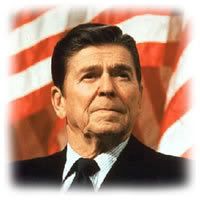Post by cameron on Dec 29, 2005 17:59:12 GMT -8
This is my opening salvo in a debate as to the efficacy of going to war in Iraq absent WMD's. Before we get started with that, I feel compelled to say something about the controversy surrounding that particular issue. For many of the administrations critics it is the issue that for them proves the administrations decision to go to war was a mistake. I find this to be a myopic point of view held by those that are blinded by either ignorance, ideological partisanship, or both. Lets first stipulate that the current administration was not the sole source of the belief that Saddam possessed stockpiles of WMD's. There was in fact a world wide consensus. Our own intelligence agencies, as well as a bipartisan consensus between the leaders of both political parties here in the United States, to include the former president Clinton and his administration, as well as the leadership of both parties in Congress, held that Saddam did in fact posses stockpiles of WMD's.
Those that now try to claim otherwise are attempting to rewrite recent history in a fashion that will never pass the smell test. The whole idea that the administration would use Iraq's WMDs as a "pretext" for war is stupid. If the administration knew Saddam didn't have the weapons, then it also knew its "pretext" would be exposed as soon as the invasion was complete. I myself would not be surprised if in a hundred years from now some archaeologist stumbles over them by accident buried out in the western desert of Iraq. For the sake of this debate, and the fact that we have not found any. I'm willing to concede there were no stockpiles of WMD's.
It does not automatically follow that the threat posed by Saddam and his evil regime did not exist, or that removing him from power was not the right decision for the President to make, and by right I mean both moral and correct. Those who think the absence of stockpiles of WMD's negates the threat Saddam posed, or the moral argument for his removal, fail at a fundamental level to understand the nature of Saddam's regime and the threat that it represented to the world. It was the very nature of the regime that posed a threat, not the current state of Saddam's stockpile of WMD's.
Saddam was a sworn enemy of the United States and was in a de facto low level hot war with the United States from the time of the first Gulf War. He harbored the known master mind behind the first attempt by al Qaeda to blow up the world trade center, along with other known terrorists wanted by the United States. He used his secret service to attempt to take the life of a former president of the United States. He gave sanctuary to members of al Qaeda fleeing American forces in Afghanistan. He was constantly and consistently attempting to shoot down American aircraft tasked to enforce the no fly zones. No fly zones established by the United Nations to protect the citizens of Iraq from their bloody dictator. There is no doubting Saddam considered himself to be at war with us or that he was in violation of the armistice signed at the end of the first gulf war as well as more than half a dozen United Nations resolutions.
Saddam may not have had stockpiles of WMD's at the time we chose to invade. If we consider the fact that since the end of the first gulf war Saddam had been gaming the United Nations resolutions and the sanctions regime put in place against Iraq it isn't all that important. In fact we may have just been lucky to catch him before he had the chance to reconstitute them. Saddam intended to recreate his WMD capability as soon as sanctions were removed, and according to the report to the DCI Saddam aspired to develop a nuclear capabilities irrespective of international pressure. All of this can be found in the key findings of the Comprehensive Report of the Special Advisor to the DCI on Iraq's WMD.
Saddam's primary goal from 1991 to 2003 was to have UN sanctions lifted, while maintaining the security of the Regime. He sought to balance the need to cooperate with UN inspections-to gain support for lifting sanctions-with his intention to preserve Iraq's intellectual capital for WMD with a minimum of foreign intrusiveness and loss of face. Indeed, this remained the goal to the end of the Regime.
To assert that our failure to find WMD's as proof the sanctions were working is an absolute canard as shown by this finding from the same report.
By 2000-2001, Saddam had managed to mitigate many of the effects of sanctions and undermine their international support. Iraq was within striking distance of a de facto end to the sanctions regime, both in terms of oil exports and the trade embargo, by the end of 1999.
The introduction of the Oil-For-Food program OFF in late 1996 was a key turning point for the Regime. OFF rescued Baghdad's economy from a terminal decline created by sanctions. The Regime quickly came to see that OFF could be corrupted to acquire foreign exchange both to further undermine sanctions and to provide the means to enhance dual-use infrastructure and potential WMD-related development.
Saddam had in fact been successful in using (OFF) to drive a wedge between the members of the United Nations Security Council. Faced with these facts how can anyone seriously argue that the United Nations who had close to ten years to deal with this problem only needed a little more time. Saddam had repeatedly defied U.N. resolutions and he had expelled inspectors, demanding either enforcement or appeasement and subsequent humiliation of the international community. This game had already gone on for far to long and the time was long past due to put an end to it. This simply could not be allowed to continue in a post 9/11 world.
We do not have any proof of collaboration between Saddam and al Qaeda, that is not the same thing as saying there were no contacts between Saddam and al Qaeda. In fact we know that there were high level contacts between the two. This is not even in dispute by those who actually know what it is they are talking about. To use the quote from the 911 commission report that we have no proof of "operational cooperation" between the two, as though that means there were no contacts between them, is to either willfully misrepresent what the report actually says, or to be ignorant of what it actually says. In fact according to both the 911 commission report and the Senate Intelligence Committee. We know there were high level contacts through out the 1990's between Saddam's Iraq and al Qaeda. The intelligence reports say this relationship was grounded in both sides hatred for the United States. Due to the poor nature of our intelligence the only time we may have ever have been able to establish collaboration between Saddam and al Qaeda may have been after a catastrophic attack on par with 911 or worse. Again in the wake of 911 how can anyone argue that this could be allowed to continue?
We had a moral obligation to the people of Iraq to remove Saddam from power. In the wake of the first gulf war, we encouraged the Iraqis people to rise up against Saddam. Then stood and watched doing nothing as he butchered his own people. Of all the arguments to remove Saddam this is the most compelling. How could it be otherwise for anyone claiming to care about the plight of oppressed peoples? To say that this was not one of the original reasons for toppling Saddam is false. The President made this case in his speech before the world at the United Nations and it is listed in detail in the Congressional authorization to use force to remove him. Be that as it may, even if he had not made the case it does not diminish this reason as the most compelling of all. Nor does it negate the moral authority of this argument to ask why have we not liberated the peoples suffering under the heal of other bloody dictators. To not have acted everywhere that people are brutally oppressed is not a reason, to not act anywhere. It is indisputable that the people of Iraq are better off now even with the "insurgency" than they were under Saddam and the United States and the world is safer with him standing trail for his bloody tyranny.
I am sorry there was an intelligence lapse, but that does not change the fact that there are tens of thousands of rotting corpses in the deserts of Iraq that are the work of Saddam and his sons who thanks to the belated efforts of the United States, have now been put permanently out of the business of mass death. This does not mean the ends justify the means, but rather to acknowledge that there are always deeper reasons to go to war than what lawyers, diplomats, and politicians profess. Those underlying factors are ultimately judged as moral or immoral by history's unforgiving logic
Those that now try to claim otherwise are attempting to rewrite recent history in a fashion that will never pass the smell test. The whole idea that the administration would use Iraq's WMDs as a "pretext" for war is stupid. If the administration knew Saddam didn't have the weapons, then it also knew its "pretext" would be exposed as soon as the invasion was complete. I myself would not be surprised if in a hundred years from now some archaeologist stumbles over them by accident buried out in the western desert of Iraq. For the sake of this debate, and the fact that we have not found any. I'm willing to concede there were no stockpiles of WMD's.
It does not automatically follow that the threat posed by Saddam and his evil regime did not exist, or that removing him from power was not the right decision for the President to make, and by right I mean both moral and correct. Those who think the absence of stockpiles of WMD's negates the threat Saddam posed, or the moral argument for his removal, fail at a fundamental level to understand the nature of Saddam's regime and the threat that it represented to the world. It was the very nature of the regime that posed a threat, not the current state of Saddam's stockpile of WMD's.
Saddam was a sworn enemy of the United States and was in a de facto low level hot war with the United States from the time of the first Gulf War. He harbored the known master mind behind the first attempt by al Qaeda to blow up the world trade center, along with other known terrorists wanted by the United States. He used his secret service to attempt to take the life of a former president of the United States. He gave sanctuary to members of al Qaeda fleeing American forces in Afghanistan. He was constantly and consistently attempting to shoot down American aircraft tasked to enforce the no fly zones. No fly zones established by the United Nations to protect the citizens of Iraq from their bloody dictator. There is no doubting Saddam considered himself to be at war with us or that he was in violation of the armistice signed at the end of the first gulf war as well as more than half a dozen United Nations resolutions.
Saddam may not have had stockpiles of WMD's at the time we chose to invade. If we consider the fact that since the end of the first gulf war Saddam had been gaming the United Nations resolutions and the sanctions regime put in place against Iraq it isn't all that important. In fact we may have just been lucky to catch him before he had the chance to reconstitute them. Saddam intended to recreate his WMD capability as soon as sanctions were removed, and according to the report to the DCI Saddam aspired to develop a nuclear capabilities irrespective of international pressure. All of this can be found in the key findings of the Comprehensive Report of the Special Advisor to the DCI on Iraq's WMD.
Saddam's primary goal from 1991 to 2003 was to have UN sanctions lifted, while maintaining the security of the Regime. He sought to balance the need to cooperate with UN inspections-to gain support for lifting sanctions-with his intention to preserve Iraq's intellectual capital for WMD with a minimum of foreign intrusiveness and loss of face. Indeed, this remained the goal to the end of the Regime.
To assert that our failure to find WMD's as proof the sanctions were working is an absolute canard as shown by this finding from the same report.
By 2000-2001, Saddam had managed to mitigate many of the effects of sanctions and undermine their international support. Iraq was within striking distance of a de facto end to the sanctions regime, both in terms of oil exports and the trade embargo, by the end of 1999.
The introduction of the Oil-For-Food program OFF in late 1996 was a key turning point for the Regime. OFF rescued Baghdad's economy from a terminal decline created by sanctions. The Regime quickly came to see that OFF could be corrupted to acquire foreign exchange both to further undermine sanctions and to provide the means to enhance dual-use infrastructure and potential WMD-related development.
Saddam had in fact been successful in using (OFF) to drive a wedge between the members of the United Nations Security Council. Faced with these facts how can anyone seriously argue that the United Nations who had close to ten years to deal with this problem only needed a little more time. Saddam had repeatedly defied U.N. resolutions and he had expelled inspectors, demanding either enforcement or appeasement and subsequent humiliation of the international community. This game had already gone on for far to long and the time was long past due to put an end to it. This simply could not be allowed to continue in a post 9/11 world.
We do not have any proof of collaboration between Saddam and al Qaeda, that is not the same thing as saying there were no contacts between Saddam and al Qaeda. In fact we know that there were high level contacts between the two. This is not even in dispute by those who actually know what it is they are talking about. To use the quote from the 911 commission report that we have no proof of "operational cooperation" between the two, as though that means there were no contacts between them, is to either willfully misrepresent what the report actually says, or to be ignorant of what it actually says. In fact according to both the 911 commission report and the Senate Intelligence Committee. We know there were high level contacts through out the 1990's between Saddam's Iraq and al Qaeda. The intelligence reports say this relationship was grounded in both sides hatred for the United States. Due to the poor nature of our intelligence the only time we may have ever have been able to establish collaboration between Saddam and al Qaeda may have been after a catastrophic attack on par with 911 or worse. Again in the wake of 911 how can anyone argue that this could be allowed to continue?
We had a moral obligation to the people of Iraq to remove Saddam from power. In the wake of the first gulf war, we encouraged the Iraqis people to rise up against Saddam. Then stood and watched doing nothing as he butchered his own people. Of all the arguments to remove Saddam this is the most compelling. How could it be otherwise for anyone claiming to care about the plight of oppressed peoples? To say that this was not one of the original reasons for toppling Saddam is false. The President made this case in his speech before the world at the United Nations and it is listed in detail in the Congressional authorization to use force to remove him. Be that as it may, even if he had not made the case it does not diminish this reason as the most compelling of all. Nor does it negate the moral authority of this argument to ask why have we not liberated the peoples suffering under the heal of other bloody dictators. To not have acted everywhere that people are brutally oppressed is not a reason, to not act anywhere. It is indisputable that the people of Iraq are better off now even with the "insurgency" than they were under Saddam and the United States and the world is safer with him standing trail for his bloody tyranny.
I am sorry there was an intelligence lapse, but that does not change the fact that there are tens of thousands of rotting corpses in the deserts of Iraq that are the work of Saddam and his sons who thanks to the belated efforts of the United States, have now been put permanently out of the business of mass death. This does not mean the ends justify the means, but rather to acknowledge that there are always deeper reasons to go to war than what lawyers, diplomats, and politicians profess. Those underlying factors are ultimately judged as moral or immoral by history's unforgiving logic









